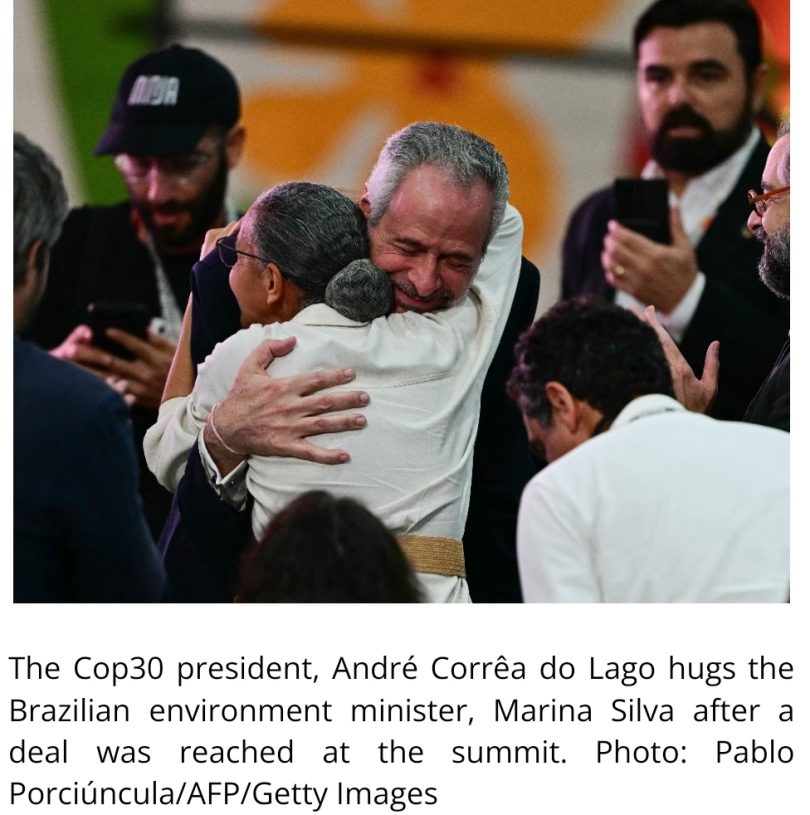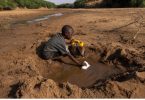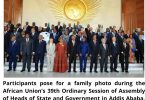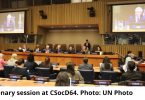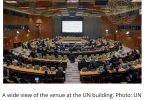The 30th United Nations Climate Change Conference (COP30) held its High-Level Segment and concluding negotiations in Belém, Brazil, from November 17 to 21, 2025. The following report provides a chronological recap of the summit’s final week, detailing the key speeches, diplomatic developments, and the terms of the closing agreement.
Day 6
Starting in week 2 of the COP30 event, the high-level segment of COP30 opened with a blunt reminder that the world is racing toward a new clean energy economy. At the same time, diplomatic negotiations continue to move at a slow and deliberate pace. As ministers settled in for the final week, UNFCCC Executive Secretary Simon Stiell wasted no time calling out what he described as the era of performative diplomacy. He warned that the global landscape is fractured and that climate disasters are no longer distant threats but immediate shocks.
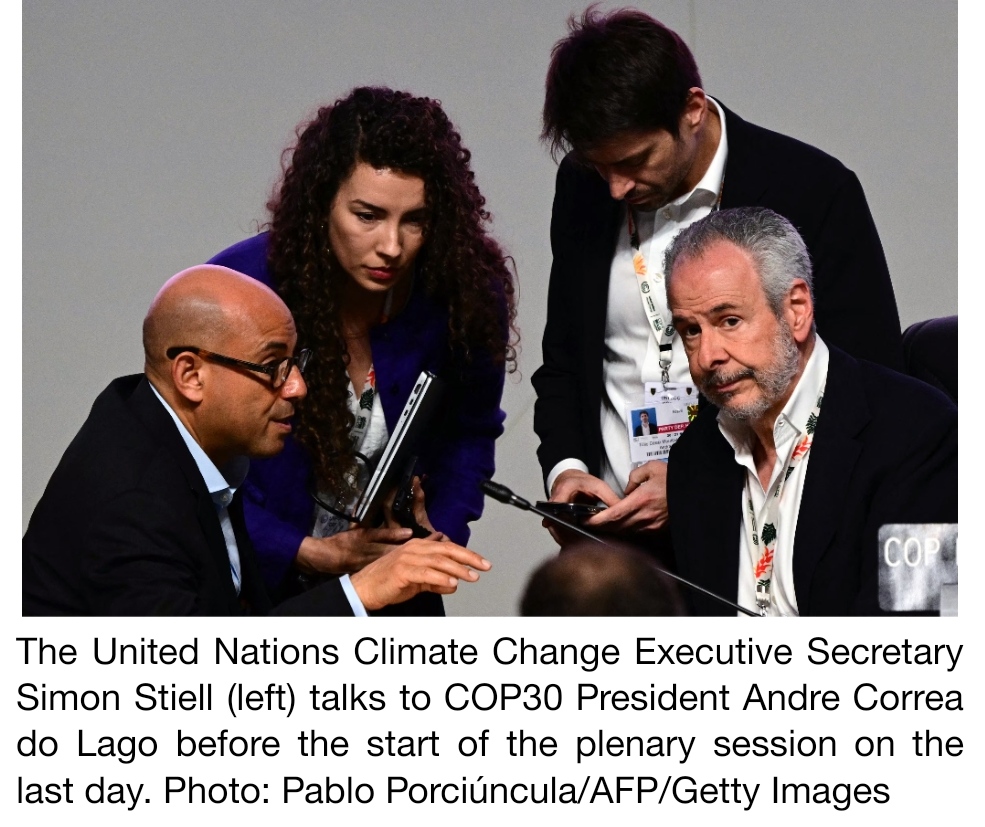
Stiell told leaders they were entering the room mid-stride. Markets have already shifted. Over two trillion dollars flowed into renewable energy last year, a figure greater than the entire GDP of most nations. In his words, this progress is not a luxury. It is the lifeline. Yet he drew a sharp contrast between this momentum and the slow pace of talks in Belém. The spirit exists, but the speed does not, he said, urging ministers to abandon tactical delays. When negotiations slip into extra time, everyone loses.
The call for unity was echoed in a message from the President of the United Nations General Assembly, underscoring the need for renewed multilateral cooperation. Even so, deep divisions surfaced early. Saudi Arabia faced pointed criticism for blocking progress on the Global Stocktake and resisting language on a fossil fuel transition. Observers described the Kingdom’s approach as a wrecking ball. Former United States Vice President Al Gore accused Riyadh of reckless obstruction even as its own territory faces unbearable heat.
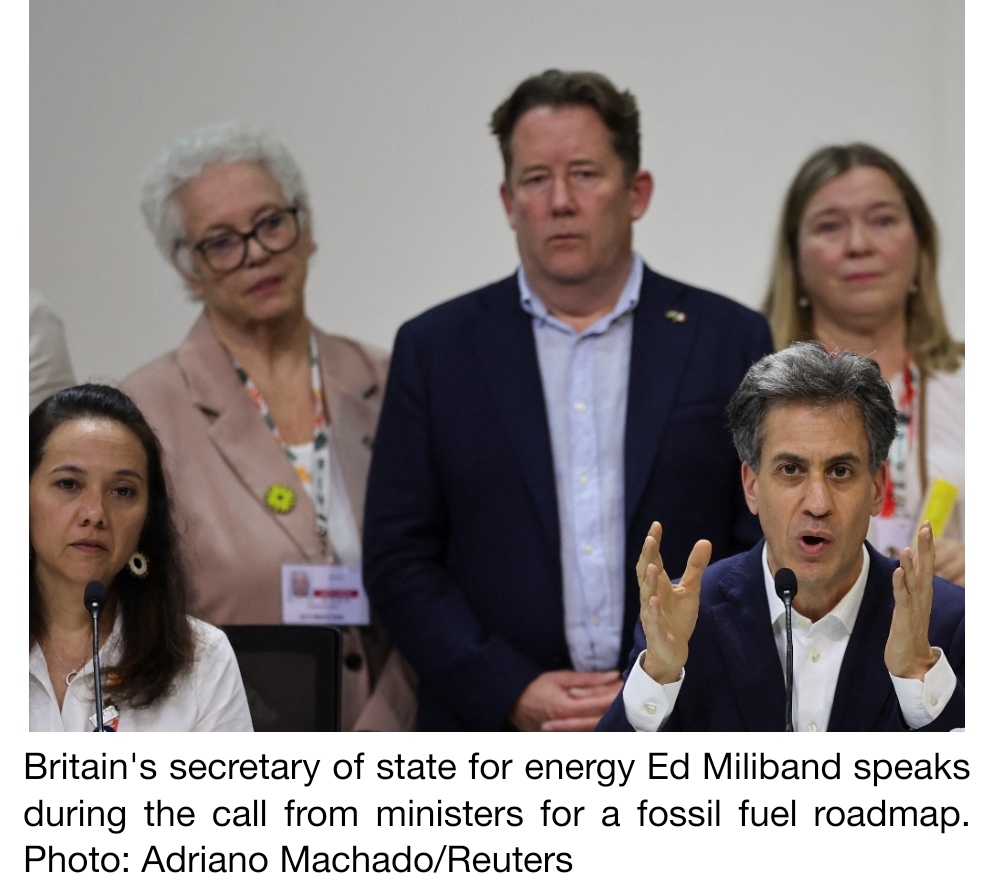
Civil society leaders added another layer of pressure, accusing wealthy nations of climate hypocrisy for urging ambition from the global south while failing to meet their own financial responsibilities. Indigenous groups also expressed alarm after increased security at the venue created an atmosphere of fear, particularly in the wake of the killing of Indigenous leader Vicente Fernandes Vilhalva.
The urgency of the moment was felt through stories from the Caribbean after Hurricane Melissa reshaped entire communities within a single day. Ministers warned that tomorrow will be too late if decisive action is not taken now.
Day 7
The seventh day of COP30 opened with a surge of political energy as more than eighty countries stepped onto the main stage and called for a binding roadmap to move the world beyond fossil fuels. Yet while ministers inside the venue celebrated the Brazilian spirit of collective labor, the summit faced a growing crisis outside, with United Nations human rights experts condemning the heavy security presence and the sidelining of Indigenous voices.
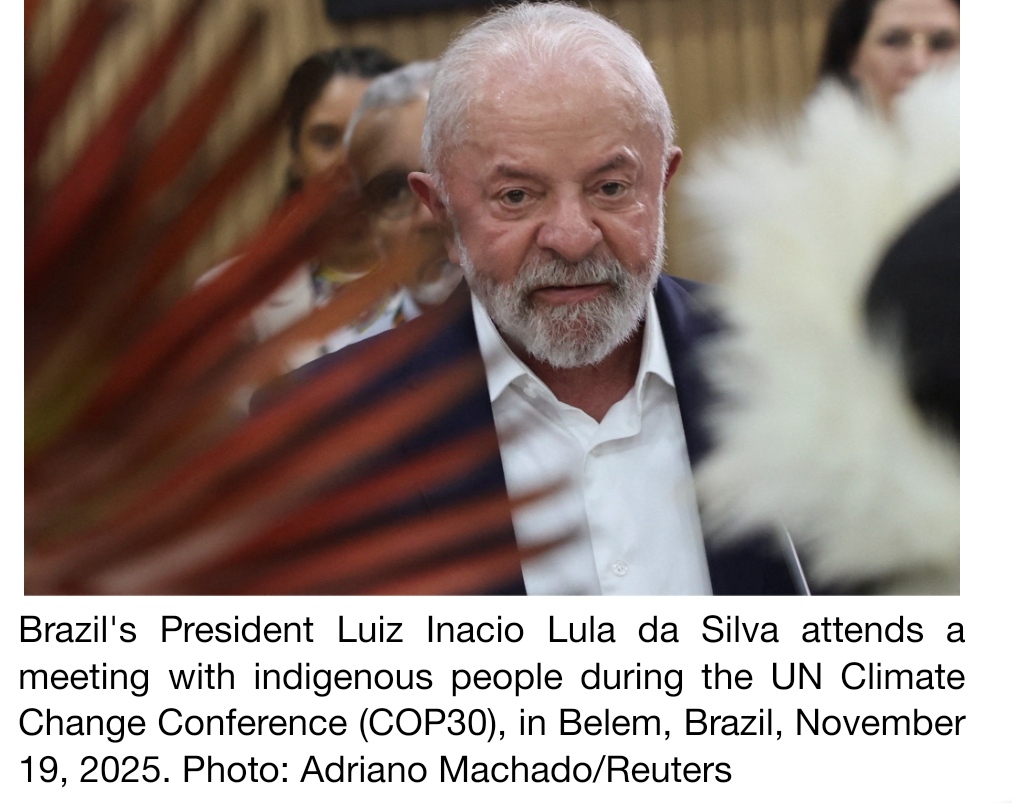
The contrast defined the day. Ambition in the plenary hall met accusations that the Amazon COP is muting the very communities it promised to champion.
The coalition, known as the Mutirão, brought ministers from Sierra Leone, Kenya, Germany, the United Kingdom, and dozens more together in a dramatic show of unity. They demanded that the final COP30 text give practical life to the promise made in Dubai to transition away from oil, gas, and coal. Youth champion Marcele Oliveira captured the mood, telling delegates that this is the most important mobilization around climate justice for her generation. Her remarks drew loud applause.
Senior officials added weight. Ed Miliband called the roadmap central to the credibility of the conference. Germany’s Carsten Schneider said nearly all of Europe was aligned behind a just and inclusive shift away from fossil fuels. Colombia’s environment minister described the roadmap as essential for any pathway that protects the Amazon and keeps the world within the one point five degree threshold.
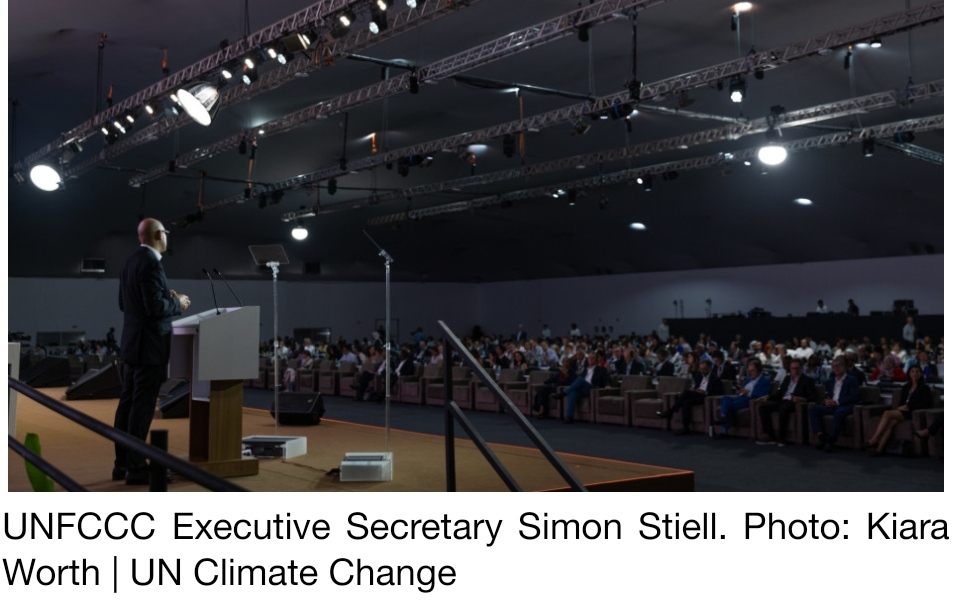
But the unity inside clashed with outrage outside. Five United Nations Special Rapporteurs issued a public warning that the intense security measures following last week’s Indigenous protest created a zone of exclusion and a chilling effect. They pointed out the painful reality that Indigenous participants faced barriers while lobbyists from fossil fuel and industrial agriculture-maintained access.
Youth voices also rose. Representatives from more than one hundred countries presented a Global Youth Statement calling for a full, fast, fair fossil exit and for adaptation to be treated as a moral priority.
As the day closed, all eyes turned to the expected draft text from the Brazilian Presidency, with negotiators facing a widening gap between rising ambition and entrenched resistance.
Day 8
The eighth day of COP30 unfolded with a mix of political urgency and diplomatic theatre as President Luiz Inácio Lula da Silva stepped into Belém to try to break the deadlock on the central question of this summit, the global transition away from fossil fuels. With the conference approaching its final hours, divisions between negotiating blocs stood in full view, even as one long-running dispute was settled, with Turkey confirmed as the next host of COP 31.
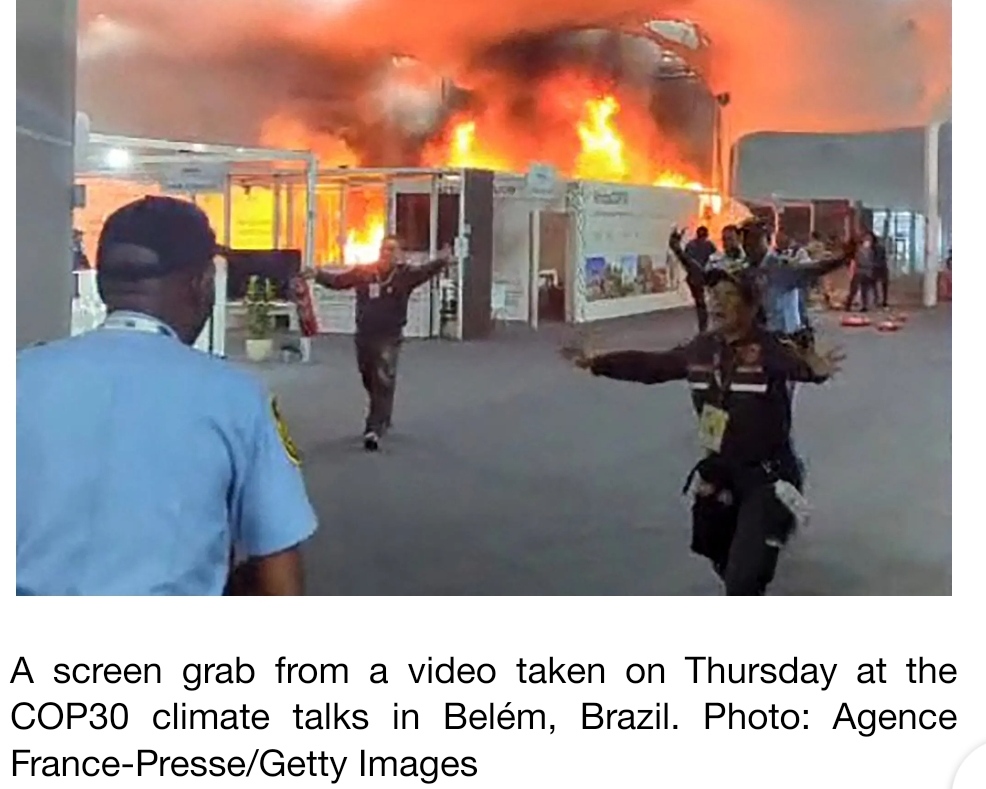
Lula arrived mid-morning and immediately began a round of shuttle diplomacy. He met with his core team, including Environment Minister Marina Silva and COP President André Corrêa do Lago, before sitting down with the countries whose positions can make or break any final deal. That included China, India, Indonesia, the European Union, the Africa Group, and the alliance of small island states. Lula’s pitch leaned on the moral weight of the most climate vulnerable, urging major emitters and petrostates to move toward consensus.
The day also brought a significant win for Indigenous communities. Lula announced the demarcation of ten new Indigenous territories, a decision that reinforces the Amazon COP narrative and signals a renewed commitment to forest peoples who have shaped much of the advocacy around this summit.
The central fight remains unchanged. Corrêa do Lago described the negotiations as a binary clash between countries demanding a fossil fuel phase-out and those resisting any such language. Momentum continues to build for a detailed roadmap to guide the transition, now backed by more than eighty nations. Still, clarity on finance is essential. Corrêa do Lago said richer nations must offer assurances even if it means using existing funds more effectively through instruments like debt for nature swaps.
Beyond the negotiating rooms, politics flared. Turkey will host COP 31 after Australia withdrew its bid in exchange for leading a separate Pacific leaders meeting. Meanwhile, a diplomatic spat erupted after comments by German Chancellor Friedrich Merz, prompting a pointed response from Lula who defended the vibrancy and warmth of Belém.
The presence of fossil fuel industry representatives remained contentious, heightened by comments from the head of Total Energies that appeared to play down the link between extreme weather and climate change. Human rights experts again reminded negotiators that the final text must rest on international law and the fundamental right to a healthy environment, placing people and nature at the center of the outcome.
Day 9
The tenth day of COP30 descended into confusion and alarm as a fire erupted in the Blue Zone, forcing a full evacuation and halting negotiations at a moment when every minute counts. The disruption came only hours after United Nations Secretary General António Guterres warned that the world’s current pace of climate action amounts to a death sentence for millions.
The blaze broke out mid-afternoon, sending security teams sprinting through the pavilion area and pushing delegates toward the exits. Witnesses described smoke rolling across the roof and crowds rushing to safety. Nathaniel Mtunji, a Kenyan policy advisor, said he saw the flames spreading along the structure as people ran. Organizers later confirmed the fire was contained within minutes. No severe injuries were reported, though several people were treated for smoke inhalation. Brazil’s tourism minister said investigators are examining the cause, adding that it is hard to imagine anyone deliberately igniting a fire at a climate summit.
For many activists, the symbolism was immediate. They described the incident as a stark metaphor for a world already ablaze while political will lags.
One diplomatic breakthrough did emerge. Turkey was confirmed as the host of COP31, ending the standoff with Australia. Meanwhile, the political divide in the United States was on display. From Washington, officials defended American fossil fuel exports, while Senator Sheldon Whitehouse, the only US federal lawmaker in Belém, said the incoming administration represents the fossil fuel industry, not the American people.
Day 10
COP30 closed on Friday with a blend of relief, frustration and the sober recognition that the world is still fighting to keep the Paris Agreement alive. Delegates reached a deal that anchors a Just Transition within the UN system, yet the summit ended without any binding language on fossil fuels, the very issue that shaped two tense weeks in the Amazon.
Simon Stiell, the UN climate chief, captured the mood in the closing plenary. He said the world is not winning the climate fight, but it remains in the arena and is pushing back despite gale-force political headwinds and the continued absence of the United States following President Donald Trump’s withdrawal.
The battle over fossil fuels dominated the negotiations. A high ambition coalition pressed until the final hours, but petrostates led by Saudi Arabia blocked any reference to oil, gas or coal in the consensus text. Even so, around ninety countries signed a voluntary commitment to develop national plans to transition away from fossil fuels. Stiell stressed that one hundred and ninety-four nations stood together in defense of the Paris framework, even as the United States stood apart.
The major breakthrough came through the creation of the Belém Action Mechanism. For the first time, the UN climate regime now has a permanent structure dedicated to supporting equitable and inclusive just transitions. The agreement survived a dramatic night of negotiations and gained decisive backing from the G77 plus China. Civil society leaders celebrated the win but warned that the mechanism lacks dedicated finance, leaving a large gap between ambition and reality.
Reviews from Indigenous leaders were mixed. Brazil secured new recognition of Indigenous land rights and a one point eight-billion-dollar pledge for territorial management, but many leaders condemned the heavy security presence and said core proposals were overlooked.
Other outcomes included a pledge to triple adaptation finance to one hundred and twenty billion dollars a year, though the deadline was pushed to 2035, and the adoption of the Belém Gender Action Plan. Conservation groups welcomed the clear recognition that climate resilience depends on healthy ecosystems.
The summit ended with a diplomatic thaw between Brazil and Germany and with the Climate Action Network awarding its Colossal Fossil prize to Saudi Arabia and the European Union for obstructing progress. It was a tense finish, capped by an apology from COP President André Corrêa do Lago, but the Paris Agreement held. The fight continues.
Written by Olivier Noudjalbaye Dedingar, USA/UN Correspondent.


